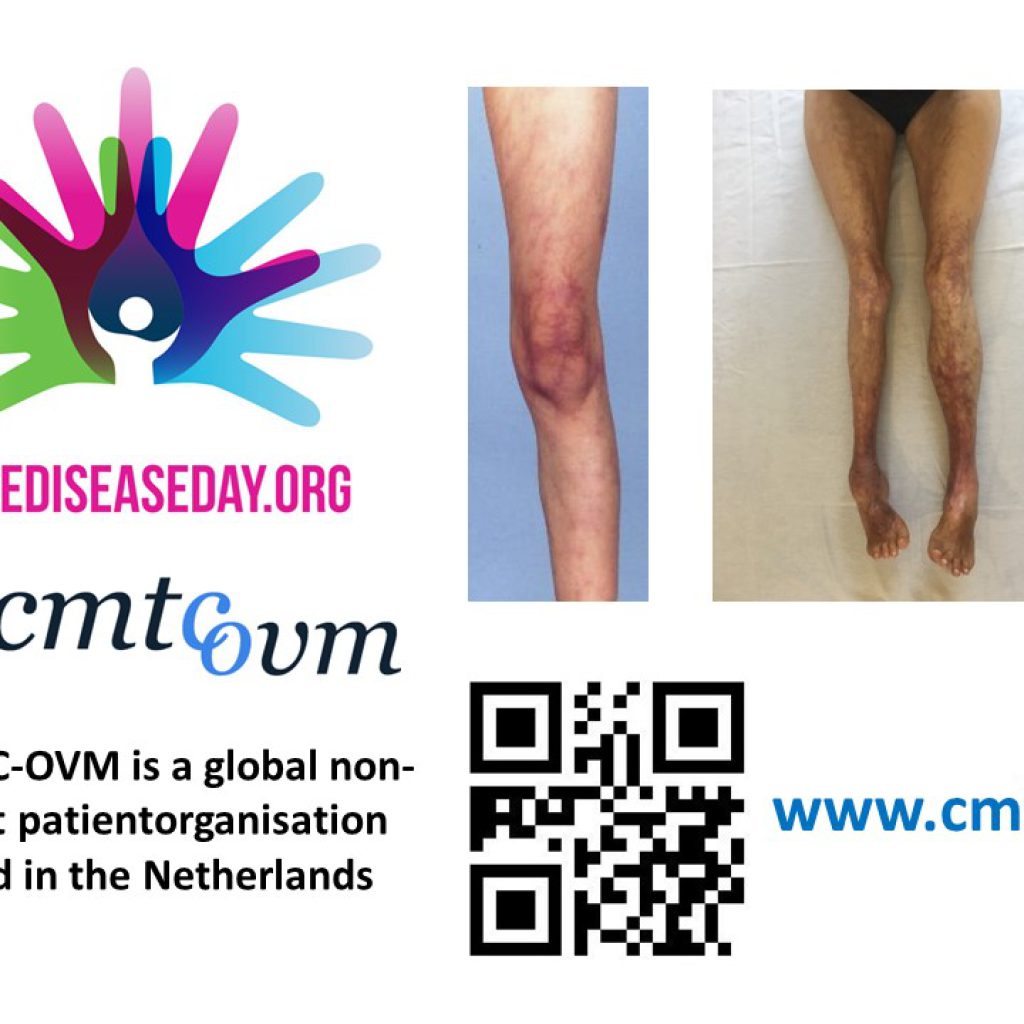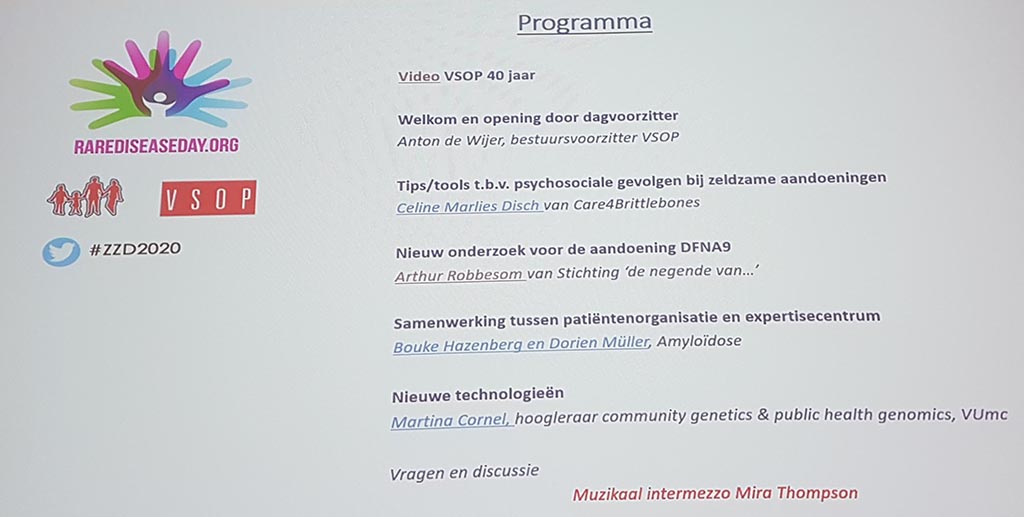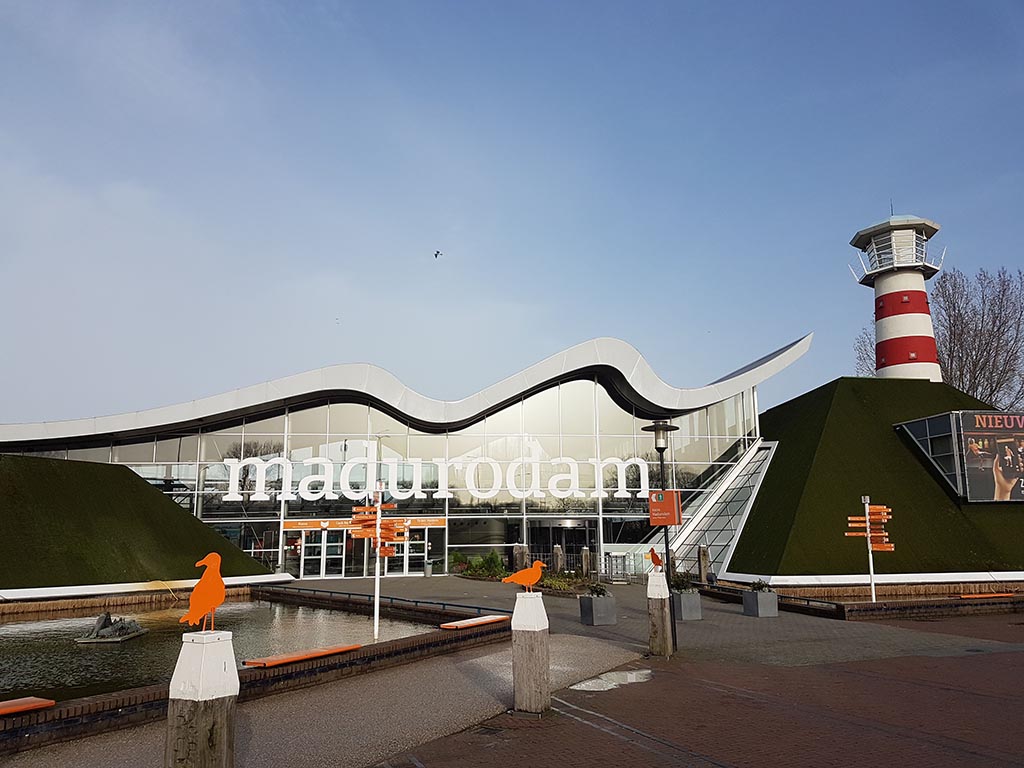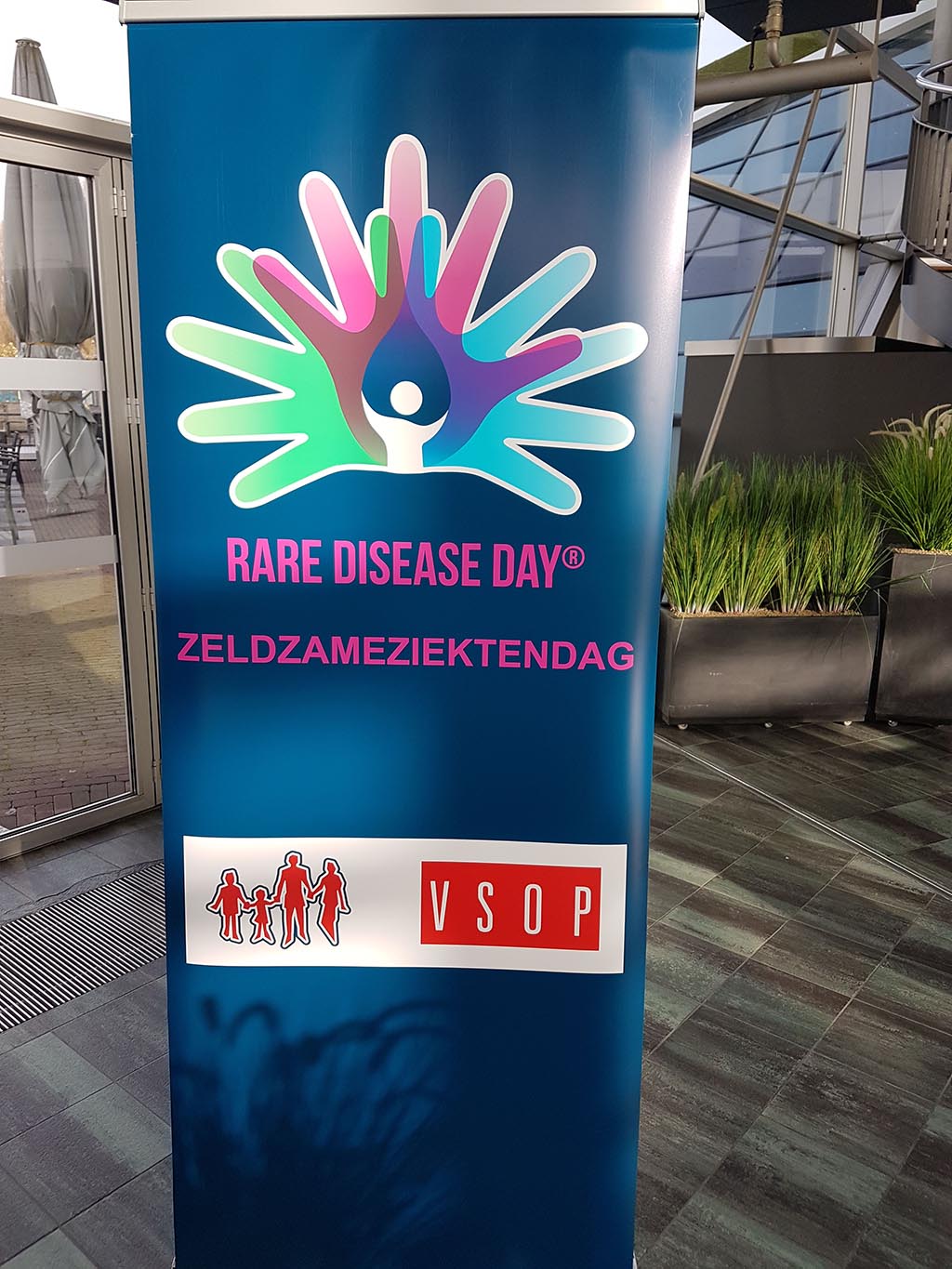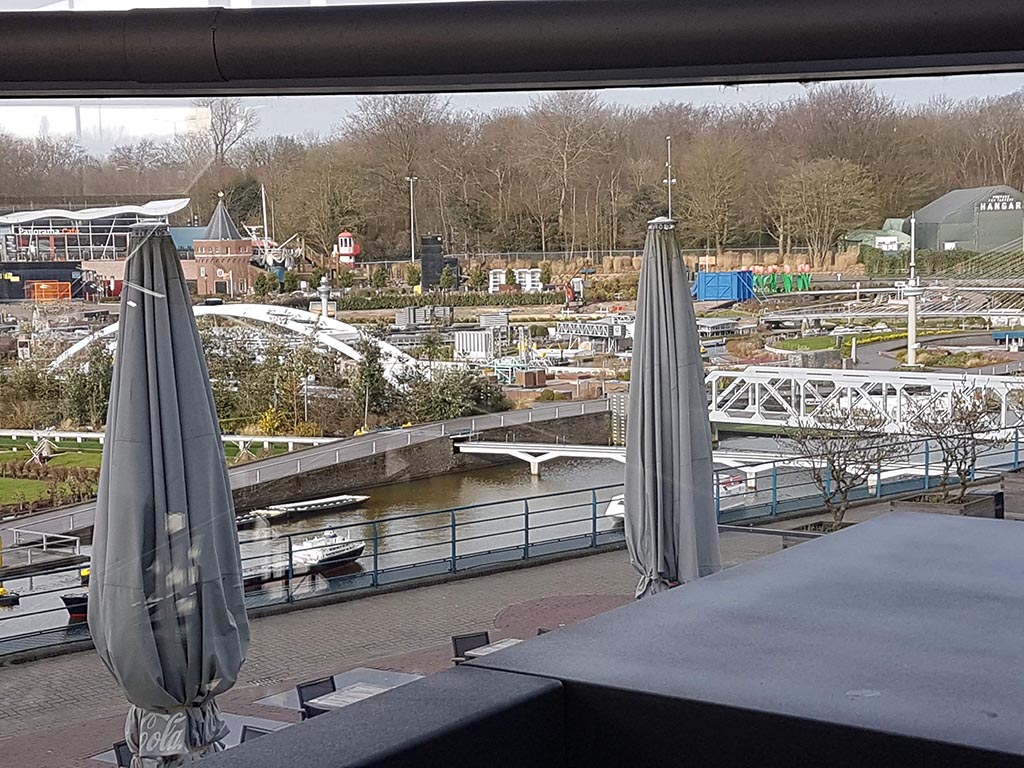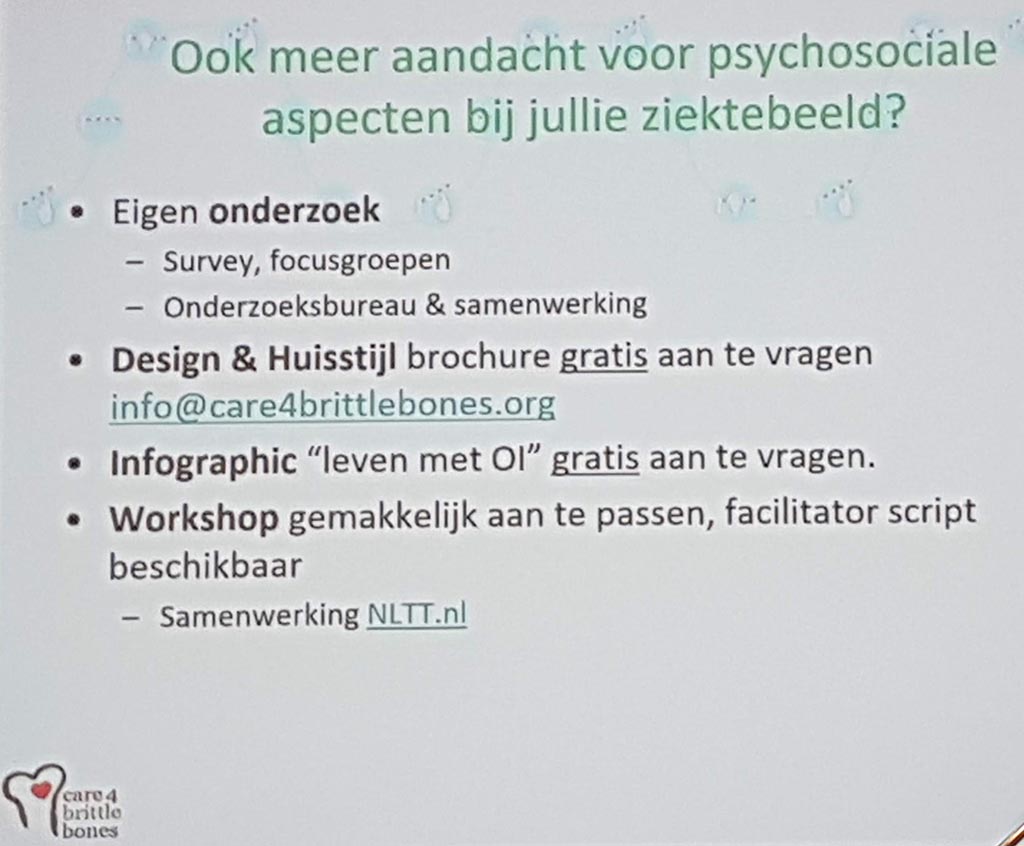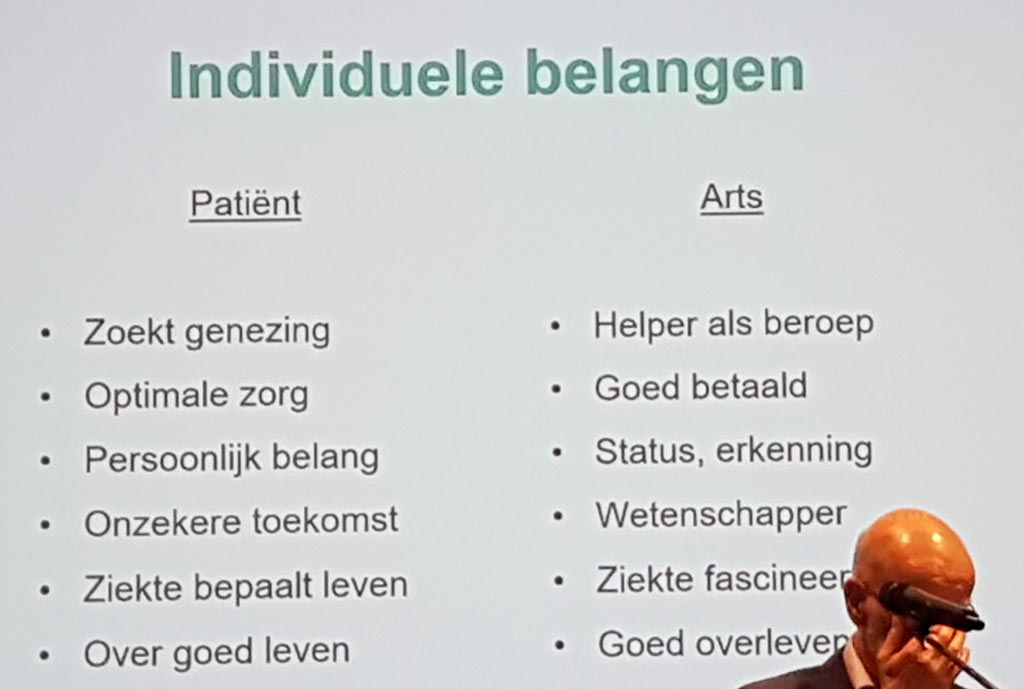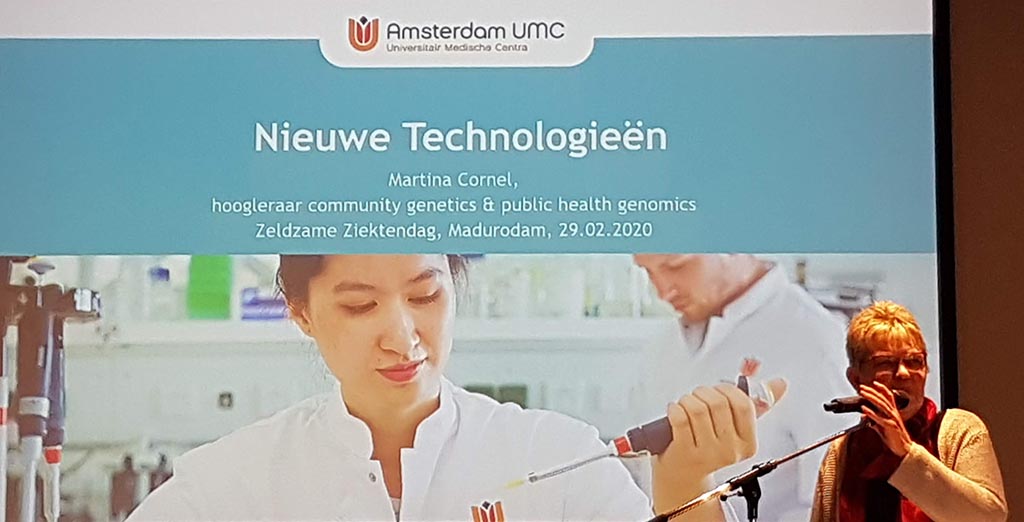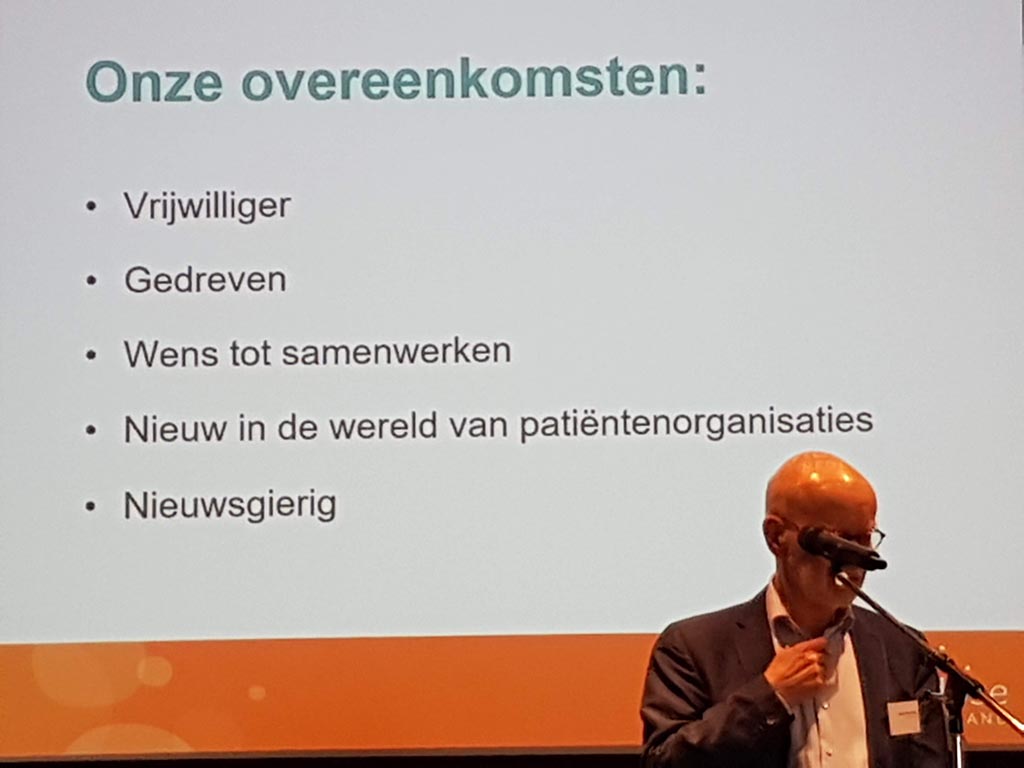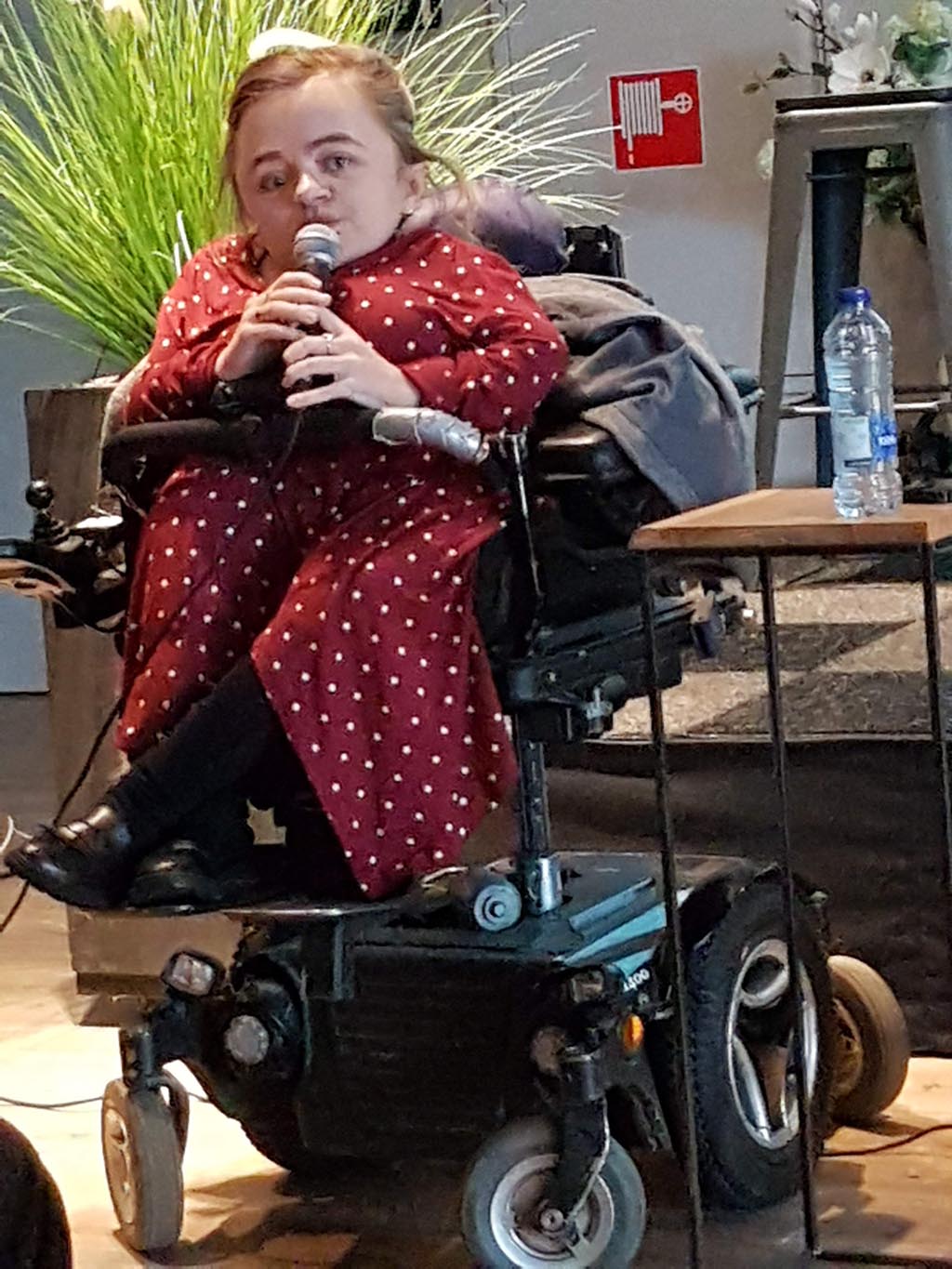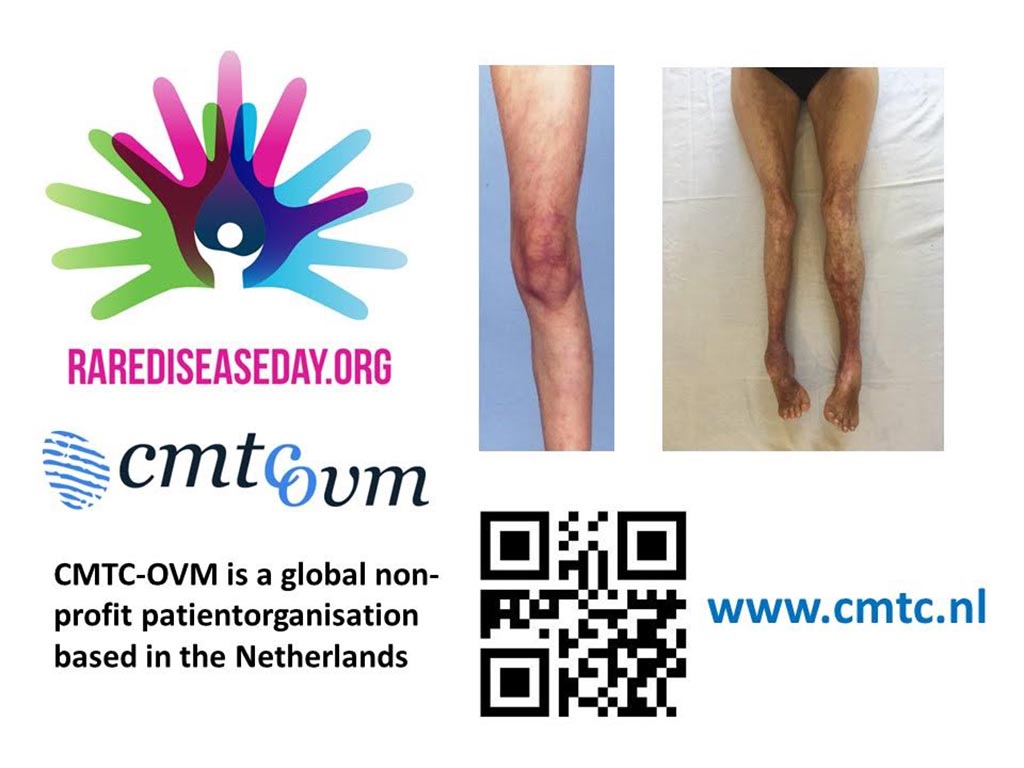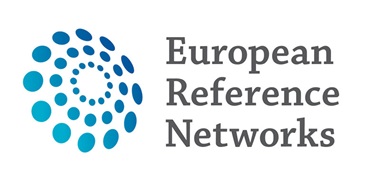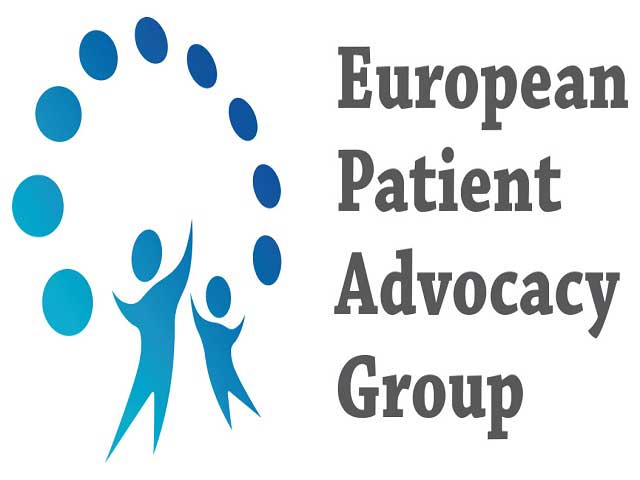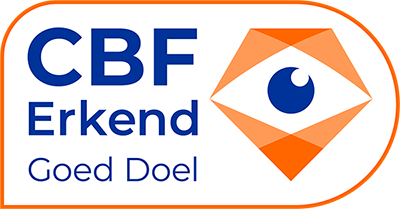World Rare Disease Day took place on 29th February 2020 and for the twelfth time, VSOP was involved in its organization. This year, VSOP organized the meeting ‘Rare – Stronger Together’ in Madurodam, The Hague. Over 100 participants were inspired by presentations from patient representatives and others.
Topics such as the psychosocial consequences of a disorder and cooperation between doctors/expertise centres and patient organizations were addressed. Singer Mira Thompson provided a musical intermezzo. For the children, there was a separate children’s program, provided by staff/volunteers of Sanofi Genzyme. The children enjoyed themselves with games, crafts and a treasure hunt in Madurodam.
Participants in the meeting were photographed together with a painted hand, which is the campaign image of Rare Disease Day by Eurordis.
Summary presentations
Celine Disch of the Care4BrittleBones Foundation gave a presentation on psychosocial aspects of Osteogenesis Imperfecta (OI). Care4BrittleBones, funded by the Care Institute Netherlands, performed research into the nature and extent of psychosocial problems, and how care is experienced on a psychosocial level. This was done together with the Association Osteogenesis Imperfecta, the centres of expertise (Isala and WKZ/UMCU) and Curia.
One of the objectives was to raise awareness to the fact that patients can experience psychosocial obstacles. In addition, the project aimed to achieve better coordination between formal care (expertise centres/providers) and informal care (e.g. via the VOI), by providing information for example. This can contribute to better screening for psychosocial barriers in the centres of expertise. The experiences, methods and materials are made widely available to other patient organizations that are interested in improving psychosocial problems among their patrons and supporters.
Arthur Robbesom from the Foundation ‘The ninth of…’ gave an introduction about new research for the disorder DFNA9. This foundation aims to create awareness, start fundraising for research and also support research activities. The Foundation has been in existence since September 2017 and has organized 3 knowledge days and has received €150,000 in donations. In addition, they have developed their own information material and contributed to articles about DFNA9 in journals and national press.
In her presentation, Prof. Dr. Martina Cornel, professor of community genetics & public health genomics at VUMC, addressed new treatments (e.g. CRISPR-Cas), new genetic tests (genome sequencing, growing your own organoid to test what works, etc.) and technology for the next generation. There are several new genetic treatments, but progress is slow. In gene therapy, market authorization and reimbursement are not yet completely clear. New genetic tests such as sequencing and organoids are increasingly “personalized”. Here too, market authorization and reimbursement are not yet entirely clear.
Dorien Müller of the Stichting Amyloïdose Nederland and Dr. Bouke Hazenberg, rheumatologist and head of the Expertise Centre Amyloidosis at the UMCG, discussed the cooperation between the patient organization and expertise centre. Their goal is to pursue the well-being (health and interests) of patients with amyloidosis. Human dimension and personal drive are essential for cooperation to succeed. Although both parties have their own interests, they also have similarities. They indicate that there are conditions for cooperation such as stepping out of your role, mutual respect, listening to each other, empathizing with others, but above all, seeing the added value of cooperation and behaving accordingly. Meanwhile, the Amyloïdose Foundation the Netherlands and expertise centre have developed several documents, such as a general practitioner brochure and a quality standard. In 2020, they will work together on a website that offers insight in the healthcare network. This will be a portal for patients and care providers. Furthermore, it offers the opportunity for the network of expertise centres, treatment centres and patient organizations to present themselves and be found. This website also aims to contribute to early recognition and early treatment.
Rare Angel Awards 2020
On World Rare Disease Day, the annual Rare Angel Awards were presented to people who are highly motivated and committed in their support to rare diseases.
The winner of the Rare Angel Award 2020 in the category ‘Patient/naaste of a patient’ was Mrs. Margreet Mantel. She received the award from Mr. Frits Lekkerkerker, chairman of the jury.
Mrs. Mantel was partner and carer of her husband who suffered from Frontotemporal Dementia (FTD) at the age of 51 and recently died at the age of 57. For the past 5 years, she has worked with great vigour to make the rare condition Frontotemporal Dementia (FTD) more widely known. From the FTD Lotgenoten Foundation, she has not only been able to inform the general public about the condition, but she has also ensured that professional care providers know more about this form of young dementia.
The winner of the Rare Angel Award 2020 in the category ‘Care provider/scientist’ was Mr Piet de Kleijn. Mr. de Kleijn also received an award from Mr. Lekkerkerker for his special contribution to patients with haemophilia and related coagulation disorders. He has ensured that the physiotherapist is part of the multidisciplinary treatment team for people with rare coagulation disorders, both nationally and internationally. In addition, he set up a national training network of first-line physiotherapists (PHYSHNET), with the aim of treating patients with joint bleeding and/or joint damage close to home after the acute phase.
